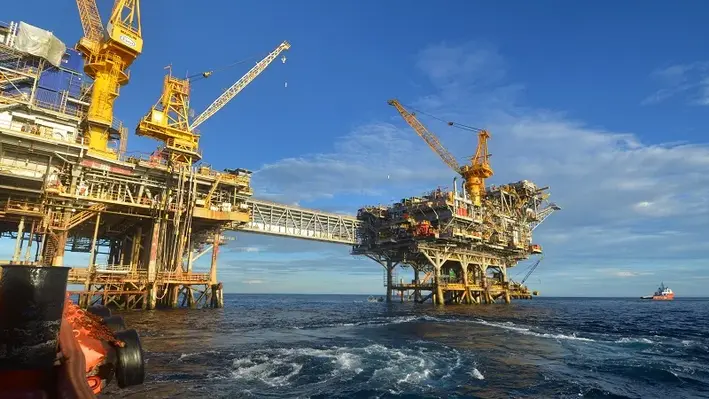

The global well intervention market is projected to grow significantly over the next decade, as operators prioritise optimising output from existing oil and gas wells.
These services, which include everything from maintenance and repairs to production enhancement, play a vital role in extending the operational life of both onshore and offshore wells while reducing downtime.
Well intervention activities generally fall into two categories: light well intervention (LWI) and heavy well intervention (HWI). LWI includes smaller, cost-efficient operations such as wellbore cleaning and monitoring. HWI covers more complex work such as hydraulic workovers and large-scale repairs, often requiring advanced tools and specialised equipment.
This demand is largely being driven by a combination of factors. Global energy consumption continues to rise, encouraging more efficient use of existing resources. Many oil fields are reaching maturity, requiring targeted intervention services to extract remaining reserves. At the same time, technological advances—particularly in digitalisation, robotics, and remote monitoring—are making well interventions more effective and cost-efficient.
According to SkyQuest Technology, the market was valued at US$9.6bn in 2024 and is expected to reach US$14.73bn by 2032, growing at a compound annual growth rate (CAGR) of 5.5%. Enhanced oil recovery (EOR) techniques and the integration of new technologies will remain key drivers in this expansion.
Regionally, North America dominates the market, led by the United States and Canada, due to a high number of mature fields and strong investment in unconventional oil and gas. Europe is seeing increased activity in the North Sea, while the Middle East and Africa continue to invest in aging infrastructure. Asia-Pacific is emerging as a growth hotspot, with countries like China and India increasing exploration and production efforts.
Several trends are shaping the market. The push into deepwater and offshore fields is generating demand for sophisticated intervention services. Automation and robotics are reducing reliance on manual labour and improving precision. EOR strategies are gaining ground, especially in mature fields. And growing environmental scrutiny is encouraging operators to seek cleaner and more sustainable methods of intervention.
The sector remains highly competitive. Global players like Schlumberger, Halliburton, Weatherford, Baker Hughes, and NOV lead the market, offering advanced services tailored to both complex offshore operations and routine onshore interventions. However, high operational costs, regulatory pressures, and geopolitical risks remain persistent challenges.
Despite these headwinds, the long-term outlook for the well intervention market is positive. As more companies look to extend the life of their assets and operate more sustainably, well intervention services will become an increasingly essential component of global oil and gas strategies.
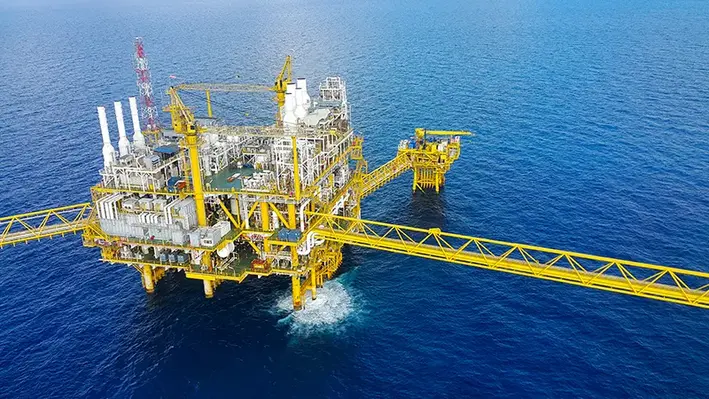
 Petrofac’s Asset Solutions division has secured a series of new contracts and scope expansions in the first quarter of 2025, amounting to US$500mn.
Petrofac’s Asset Solutions division has secured a series of new contracts and scope expansions in the first quarter of 2025, amounting to US$500mn.
These awards reflect the company’s growing presence in key markets and emerging geographies, spanning late-life asset management, decommissioning, and integrated services.
The contracts, awarded across the UK, Europe, the Middle East, Africa, Asia Pacific, and the US, bolster Petrofac’s footprint in established sectors while driving expansion into targeted regions. This significant momentum builds on a strong performance in 2024, reinforcing the company’s strategic vision.
Chief Operating Officer John Pearson commented on the achievement, stating, “Following a strong year for awards in 2024, our Asset Solutions business has had a great start to 2025 with half a billion dollars’ worth of scopes and contract expansions secured already, and a strong pipeline of opportunities across a range of geographies during the remainder of the year.”
Highlighting Petrofac’s expertise, Pearson added, “These awards, with a range of clients, demonstrate the strength in our mature asset management and decommissioning offering, and form part of our strategy to expand our services into selected new geographies. We look forward to continuing this trajectory throughout the remainder of 2025 and beyond.”
This announcement follows Petrofac’s Emirates subsidiary securing an engineering, procurement, and construction (EPC) contract with ADNOC Gas in January 2025. Valued at US$335mn, the deal covers new compression facilities for the Habshan Complex, reinforcing Petrofac’s role in critical infrastructure projects.
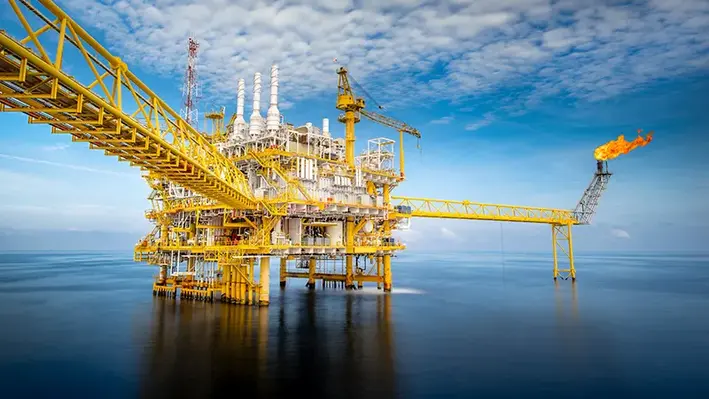
 Archer has announced that Equinor has awarded the company the planning work for the permanent plug and abandonment (P&A) of the Snorre UPA and Heidrun B&C templates.
Archer has announced that Equinor has awarded the company the planning work for the permanent plug and abandonment (P&A) of the Snorre UPA and Heidrun B&C templates.
With an extensive portfolio of P&A solutions, including a well engineering joint venture with Elemental Energies, Archer is uniquely positioned to provide end-to-end services covering planning, well engineering, and permanent well abandonment execution. This award underscores Archer's ongoing commitment to delivering cost-effective, high-quality services across the entire P&A value chain.
Commenting on the announcement, Dag Skindlo, CEO of Archer, stated, "We are honoured to have been selected by Equinor for this significant subsea P&A project. This contract reflects our team's deep expertise and dedication to subsea well P&A planning. We look forward to collaborating closely with Equinor to ensure the successful execution of this project as we strongly believe in a model where we combine well barrier design with well service specialist and new solutions. This will drive down the cost for operators."
The contract further strengthens Archer's position as a leader in the P&A market, both in Norway and globally, allowing the company to demonstrate its comprehensive expertise—from concept selection to the delivery of permanently plugged and abandoned wells.
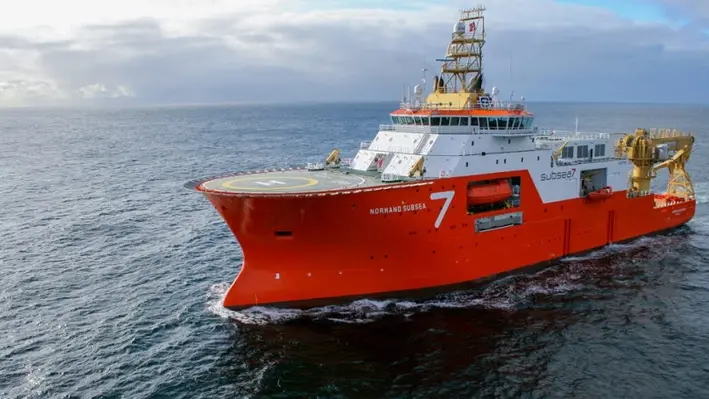
 Solstad Offshore has secured another contract with Subsea7 for its subsea construction vessel Normand Subsea.
Solstad Offshore has secured another contract with Subsea7 for its subsea construction vessel Normand Subsea.
This new contract extends the partnership between the two companies for at least another two years, with potential for further expansion. The contract is now in place and set to commence from 1 January, 2026.
Normand Subsea, a versatile inspection, maintenance and repair (IMR) vessel, has been on contract with Subsea7 since 2009. In July last year, Subsea7 exercised the 2025 optional charter period for the vessel, meaning the current contract is firm until 31 December, 2025, with no further expansion options. Under the new contract, the vessel will continue to serve Subsea7 for another two years, including three yearly options.

 Reelwell AS has secured a strategic equity investment from Odfjell Technology, which has acquired a 10% stake in the company. The investment will support the continued growth and advancement of Reelwell’s DualLink digital pipe technology.
Reelwell AS has secured a strategic equity investment from Odfjell Technology, which has acquired a 10% stake in the company. The investment will support the continued growth and advancement of Reelwell’s DualLink digital pipe technology.
As part of this agreement, the existing collaboration between Reelwell and Odfjell Technology has been extended for five years, with the option to extend for an additional five one-year terms. This partnership aims to combine Reelwell’s DualLink digital platform and modem capabilities with Odfjell Technology’s offshore expertise in equipment deployment, maintenance, and logistics.
Earlier in the year, Reelwell announced a multi-year contract with Vår Energi ASA for the provision of its DualLink-powered digital drill pipe technology. This marked the first collaboration under the cooperation agreement between the two firms. Manufacturing and assembly are currently in progress at Reelwell’s Sola facility, with project execution scheduled to begin in late 2025. Under this contract, Reelwell will oversee the complete delivery of the DualLink technology, while Odfjell Technology will supply the required drill pipe components and accessories and manage various maintenance aspects.
Jørgen Peter Rasmussen, Executive Chairman of Reelwell, stated, "We welcome Odfjell Technology to our investor group as a strong industrial partner, and I am pleased to welcome Elisabeth Haram as a new Non-Executive Director on our board. Reelwell and Odfjell Technology will work closely together to deliver DualLink services to our clients. This is great news for the industry."
Elisabeth Haram, Executive Vice President Well Services at Odfjell Technology, added: “We look forward to working closely with Reelwell to enhance sustainable drilling practices and expand the use of DualLink across new markets.”
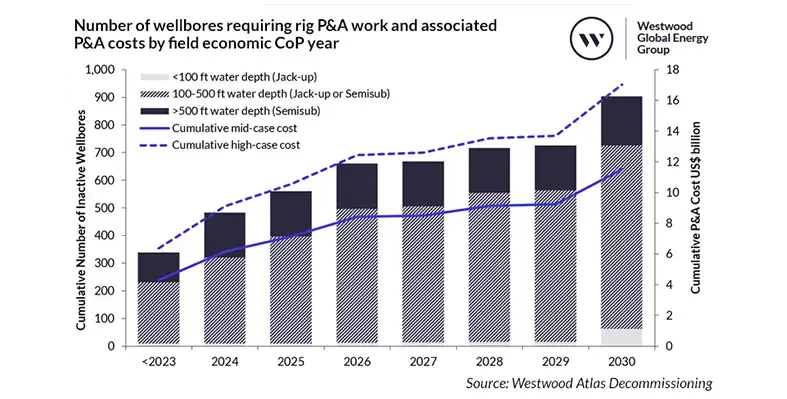
 Energy market research and consultancy firm, Westwood Global Energy Group, has found that decommissioning in the North Sea involves considerable financial and logistical challenges.
Energy market research and consultancy firm, Westwood Global Energy Group, has found that decommissioning in the North Sea involves considerable financial and logistical challenges.
Domestic production is declining owing to shaken investor confidence in the UK as a result of political and fiscal uncertainty. This suggests around US$26bn might be spent on decommissioning in the next decade, with well plug and abandonment (P&A) alone accounting for ~50% of the cost.
While decommissioning tasks keep piling up, contract awards, especially for rigs, have remained low due to the uncertainties driving financial and operational risks for operators. Execution of delayed decommissioning work will pose pressure on the already-strained supply chain. This can P&A costs could climb by up to US$5.5 billion, due to higher offshore rig dayrates, increasing financial liabilities for both operators and the UK Government, which provides tax relief on decommissioning costs.
“As the UK North Sea enters a new phase where decommissioning becomes the dominant industry driver, the supply chain faces significant demand and major financial risk,” said Yvonne Telford, Research Director at Westwood. “Based on current investment plans, up to 40% of UK fields could cease production before 2030. With the impact of decommissioning tax liabilities on abandonment expenditure, cost-effective P&A must be paramount."
Dominic Ferry, CEO at Westwood, said, “Westwood’s new Atlas Decommissioning module provides the clarity the market needs by linking infrastructure data with economic forecasts, offering stakeholders a clear view of the timing, cost, and risks associated. By delivering granular insights into decommissioning activity, the module helps operators, service providers, and investors make informed decisions, mitigate financial exposure, and seize emerging opportunities in this evolving landscape.”
Westwood has launched the new Atlas Decommissioning module which gives detailed insights into decommissioning timelines, infrastructure removal and market dynamics in real-time. It leverages key economic drivers, such as commodity prices and operating costs to dynamically model decommissioning schedules, allowing them to predict shifts in activity and optimise planning.
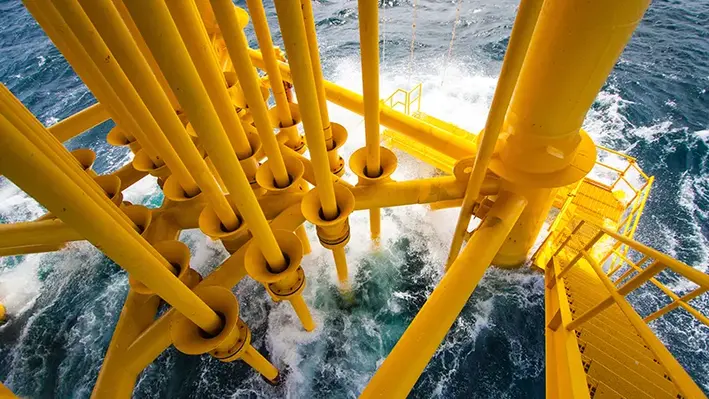
 A company specialising in rigless well intervention services, TSMarine (Contracting) Ltd, has bagged contracts of approximately £2mn for a multi-client well abandonment programme.
A company specialising in rigless well intervention services, TSMarine (Contracting) Ltd, has bagged contracts of approximately £2mn for a multi-client well abandonment programme.
The contracts will be delivered for two significant operators in the North Sea, where TSMarine's recently chartered vessel, the Rem Poseidon, will be deployed to plug and abandon three Category 2 suspended subsea wells in the Southern North Sea.
The campaign will involve perforation, followed by cementing the wells before the wellheads have been severed and recovered. TSMarine will also recover and dispose residual oil-based muds as required in the process.
Speaking on the project's focus on spreading the mobilisation and transit costs that come with decommissioning, Tim Martin, TSMarine's Regional Director for Europe and Africa, said, "We have developed this innovative approach to deliver significant cost benefits to operators - the first of several innovative approaches which we are developing to drive down the cost of subsea decommissioning.
"The trend for multi-client well abandonment projects is increasing, primarily because operators are sharing fixed costs with each other and realising the cost savings that can be achieved from a single mobilisation."
The project is similar to the one that the Aberdeen-based subsea services contractor took up in 2008 for bp, Perenco and Tullow Oil. "We are well positioned to support operators effectively manage decommissioning activity and this project underlines our ability to offer operators cost effective, bespoke well abandonment and decommissioning programmes," said Martin.
As the lead contractor for the programme, TSMarine will project manage the campaign, develop the work scope, including but not limited to, developing the required tooling, selecting and managing sub-contractors, planning and executing the offshore operations. In addition, the project team will carry out well reviews, HIRA and emergency response planning.
A key player in the niche subsea rigless intervention and decommissioning market, TSMarine operates worldwide, with offices in Aberdeen, Bergen, Norway, Perth Australia, Singapore and Nigeria.
To know more about Europe's well intervention scene, click here.
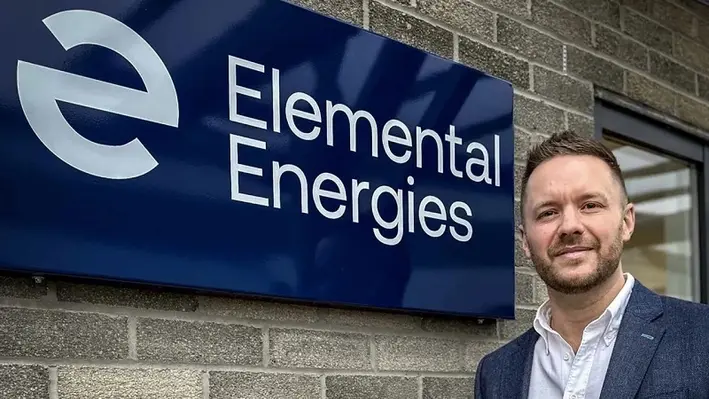
 Elemental Energies has expanded its senior management team with the appointment of Ross Provan as Head of Decommissioning Solutions.
Elemental Energies has expanded its senior management team with the appointment of Ross Provan as Head of Decommissioning Solutions.
Ross will bring 18 years of projects and operational experience to the role, with expertise spanning drilling, facilities engineering, subsea, project assurance, construction and decommissioning.
In his new role, Ross will lead Elemental Energies’ focus on EPRD (engineering, preparation, removal and disposal) and the integration of services including the existing wells decommissioning capabilities across all areas of the work breakdown structure.
Mike Adams, Chief Executive Officer at Elemental Energies, said, “With global offshore decommissioning spend projected to double over the next two decades, the need for integrated, cost-effective and innovative solutions is crucial […] With Ross leading this key area, we are confident that his experience and expertise will help us to continue to drive innovation and efficiency in the decommissioning sector.”
Elemental Energies has built a global reputation in engineering and project management, and has an extensive track record managing large-scale platform P&A, major subsea well decommissioning and integrated wells and facilities projects. Last year the company continue to expand its service offering with the joint venture announcement with Archer for global P&A services.
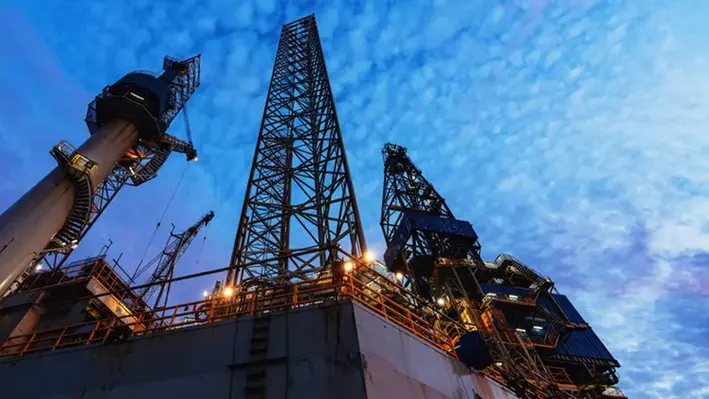
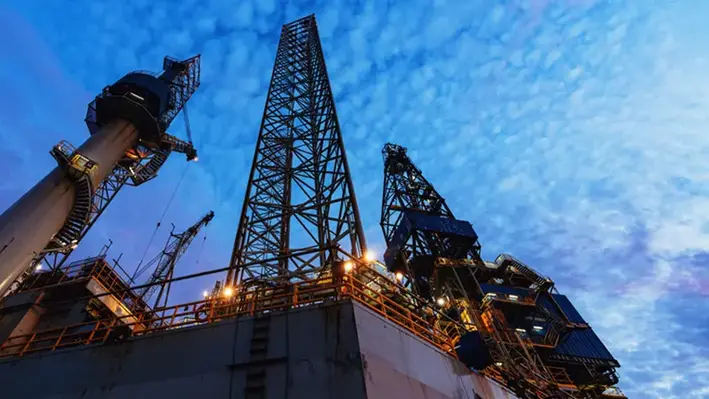 Expro, a global energy services provider, has secured a contract to supply Tubular Running Services (TRS) for a significant Carbon Capture and Storage (CCS) project in the Netherlands.
Expro, a global energy services provider, has secured a contract to supply Tubular Running Services (TRS) for a significant Carbon Capture and Storage (CCS) project in the Netherlands.
This initiative involves converting legacy offshore gas wells into CO₂ injection wells, decommissioning shallow wells, and drilling platform slot recovery wells. As the first offshore CCS storage system in the Netherlands, the project aligns with Expro’s sustainability goals.
The company will utilise its proprietary non-marking TRS technology, designed for corrosion-resistant alloy (CRA) tubulars, ensuring long-term well integrity in highly corrosive CO₂ environments.
Iain Farley, Expro’s Regional Vice President for Europe and Sub-Saharan Africa, emphasised the significance of the contract: “Securing this contract for this major CCS project highlights Expro’s advanced technical expertise in deploying CRA tubulars. The specific technologies being used throughout the project are proven in the oil and gas sector and it is fantastic to see these capabilities helping to unlock the potential of the CCS sector. Expro TRS services are designed for safety, efficiency and precision, and so we look to be playing a vital role in supporting the success of this project. Expro has a well-earned reputation for delivering high-performance solutions for complex well construction challenges and we are committed to pioneering solutions for energy transition challenges. This contract cements the company’s role in advancing sustainable practices in the offshore energy sector.”
With a legacy dating back to 1938, Expro has established itself as a leader in tubular running services worldwide. The company also provides additional well integrity solutions, including performance drilling tools, wellbore clean-out, and cementing technologies.
Expro’s comprehensive portfolio includes tubular handling products for all sizes of large OD tubulars, surface and intermediate casing, production casing, and tubing. Additionally, the company offers drill pipe handling tools designed for demanding drilling conditions and heavy landing string applications.
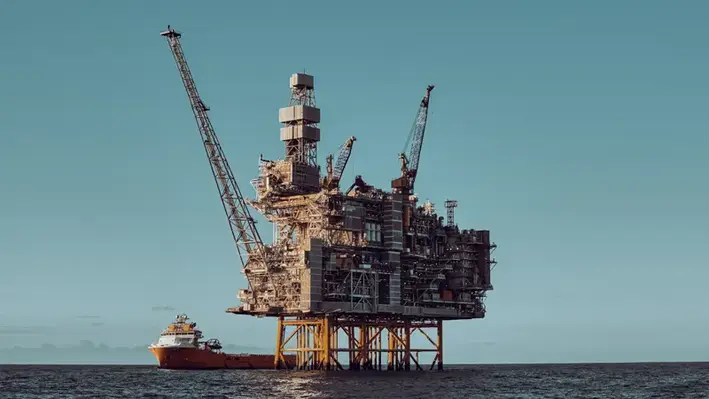
 A prominent provider of energy data and intelligence called TGS has announced the award of a 4D streamer contract acquisition project in the Barents Sea covering the Goliat 4D field operated by Var Energi.
A prominent provider of energy data and intelligence called TGS has announced the award of a 4D streamer contract acquisition project in the Barents Sea covering the Goliat 4D field operated by Var Energi.
The Goliat 4D project is scheduled to start in July with a total duration of approximately 20 days. The Goliat field was the first one to come into production in the northernmost area of the Norwegian continental shelf. It boasts one of the largest and advanced production units, including floating production storage and offloading (FSO) installations with permanent mooring.
Infrastructure development and drilling projects initiated in the region contributes to production boost, enhanced recovery and asset lifetime extension. Since the first discovery of oil in 2023, several exploration wells have been drilled to connect the resources as tie back to Goliat.
Kristian Johansen, CEO of TGS, commented, "We are very pleased to secure more 4D work on the Norwegian continental shelf for the 2025 summer season. We already have secured one contract in the Barents Sea with a duration of approximately 45 days, and this award is scheduled to be acquired back-to-back. Adding on the recently announced multi-client project, we have built a solid Barents Sea acquisition campaign."
To know more about the well intervention scene in and around EU, click here.
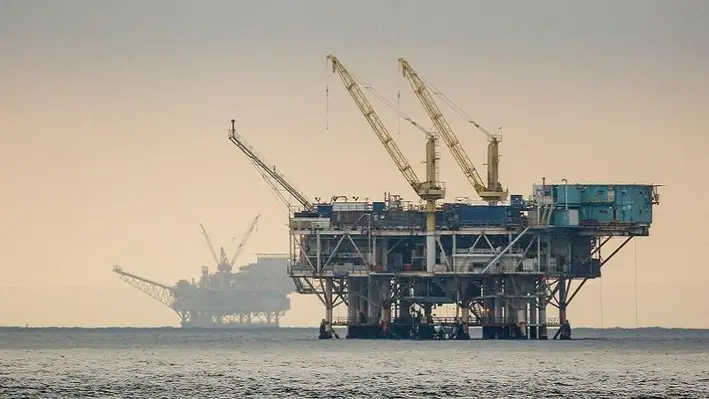
 Repsol Norge has awarded Odfjell Technology a contract to deliver drilling services on the Yme Inspirer, a jack-up rig producing oil from the Yme Field in the eastern Norwegian North Sea
Repsol Norge has awarded Odfjell Technology a contract to deliver drilling services on the Yme Inspirer, a jack-up rig producing oil from the Yme Field in the eastern Norwegian North Sea
The agreement covers drilling, completion, re-completion, well intervention, maintenance, engineering, and plug and abandonment (P&A) services. The firm contract spans five years, commencing this spring, with options for two additional three-year extensions. The estimated value of the firm period is NOK 400 million ($38 million), while the full contract, including options, could reach NOK 1 billion (US$95mn).
In a separate deal, Odfjell Technology has secured a contract from OSM Thome to perform upgrades and modifications on the Heidrun B Floating Storage Unit (FSU) in the Norwegian Sea. This facility is owned by Equinor and its partners, with OSM Thome responsible for daily operations and maintenance.
The scope of work includes engineering, construction, and installation, such as implementing a new volatile organic compounds (VOC) recovery system and replacing an existing crane to enhance the FSU’s safety and technical integrity. While the upgrade efforts commenced in May 2022, they have now been formalized under this contract, with completion expected by early 2027.
Additionally, OSM Thome has subcontracted Odfjell Engineering to carry out specific modifications under this agreement.
These contracts reinforce Odfjell Technology’s strong position in the North Sea energy sector, providing critical drilling, intervention, and engineering solutions to optimize offshore assets and support long-term energy production.
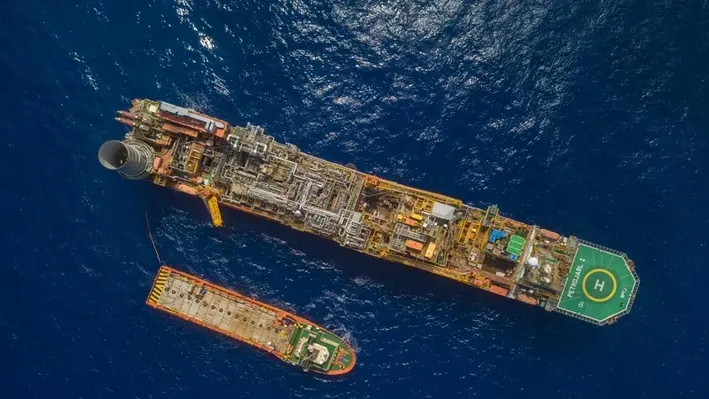
 Amplus Energy Services has acquired the Petrojarl I vessel, marking a significant milestone in the company’s market position.
Amplus Energy Services has acquired the Petrojarl I vessel, marking a significant milestone in the company’s market position.
The purpose-built FPSO unit is renowned as one of the most versatile and widely deported FPSOs in history. Amplus has acquired the Petrojarl I from UK-based Altera Infrastructure. Fully classes, the vessel has recently completed a successful deployment in Brazil.
Notably, this acquisition marks Amplus’ initial vessel ownership, positioning the company to expand its strategy and meet growing market demands. To date, Amplus has focused on delivering innovative field development solutions, offering vessel design and leasing options over direct ownership.
Steve Gardyne, Managing Director at Amplus, said, “This vessel is unquestionably the most flexible and most deployed FPSO in history – and Amplus now has the opportunity to apply our experience and approach to steward it safely and successfully for years to come. The addition of this vessel strengthens our ability to meet growing market demands and ensure we are well-positioned to address client needs.”
Petrojarl I is available for deployment in early production system applications, extended well tests and standalone marginal field developments. Additionally, the vessel is ideal for cost-effective, lower-prediction operations and can support both early-phase and tail-phase production.
Ian Herd, Executive Director, commented, “There is a market opportunity for a trusted, entrepreneurial FPSO contractor operating at the flexible, niche end of the spectrum offering fit-for-purpose vessels at a very competitive price, backed up by a leadership team with extensive operator experience supported by a scalable and aligned set of subcontractors.
“The acquisition marks a significant advancement for Amplus Energy and we look forward to meeting the evolving needs of the industry.”
Page 7 of 36
Copyright © 2026 Offshore Network